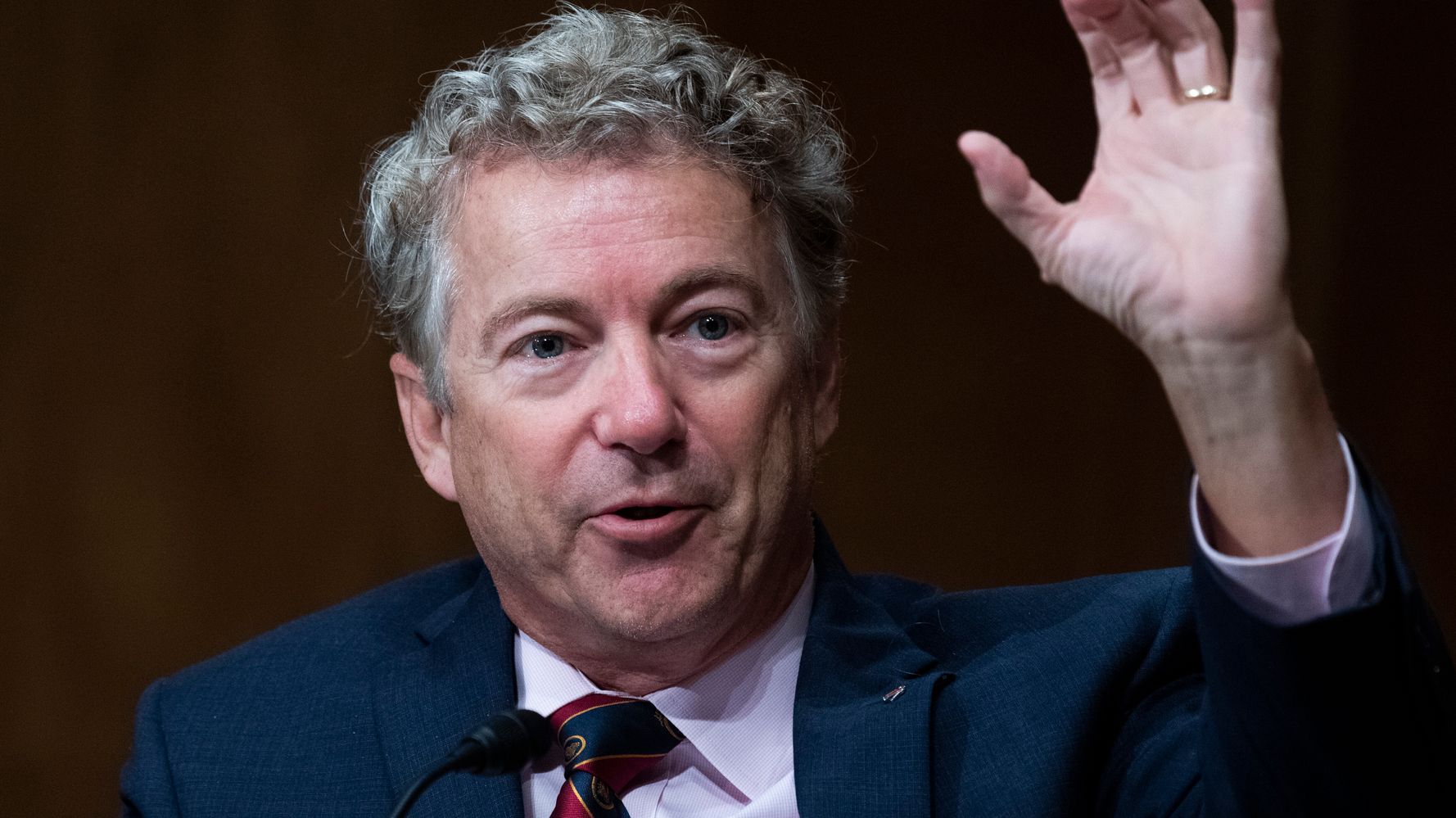Sen. Rand Paul (R-Ky.) offered dangerously incorrect COVID-19 advice on Fox News Thursday night that set off an outcry on social media.
The senator urged all those who have recovered from the coronavirus to throw out their masks and go out and enjoy public spaces because they are now “immune” to it. This is not true; there have been confirmed cases of reinfection both in the U.S. and abroad.
“We have 11 million people in our country who have already had COVID. We should tell them to celebrate. We should tell them to throw away their masks, go to restaurants, and live again, because these people are now immune,” he told Fox News host Martha MacCallum.
The Centers for Disease Control and Prevention has said that reinfection is possible and that all people should wear masks in public spaces, regardless of whether they have had COVID-19 or not.
Paul also tried to cast the nation’s leading infectious disease expert, Dr. Anthony Fauci, as melodramatic for urging the public to stay vigilant, even as virus cases soar to record-breaking highs and hospitalization rates surge.
“Dr. Fauci doesn’t want to admit to any of that,” Paul said of his false immunity claim. “Dr. Fauci is like ‘Oh, woe is me.’”
Despite Fauci being a member of his White House coronavirus task force, President Donald Trump has attacked the public health expert for differing with him on how to handle the virus.
Paul criticized the doctor on Thursday as politicized and biased. Fauci has never publicly endorsed any political candidate in his more than four decades of public service.
“He believes that submission and lockdowns are fine, he’s not too worried about individual liberties,” Paul said.
Fauci called Paul out at a Senate hearing in September for making inaccurate and unscientific claims about the coronavirus and herd immunity.
The senator’s name was trending on Twitter Thursday night after his appearance.
- Here’s the latest science on COVID antibodies.
- How does the coronavirus spread differently than the flu?
- What does the new CDC definition of a COVID-19 “close contact” mean for you?
- Is it safe to see grandparents for the holidays?
- Therapists predict how this year will shape our mental health.



















